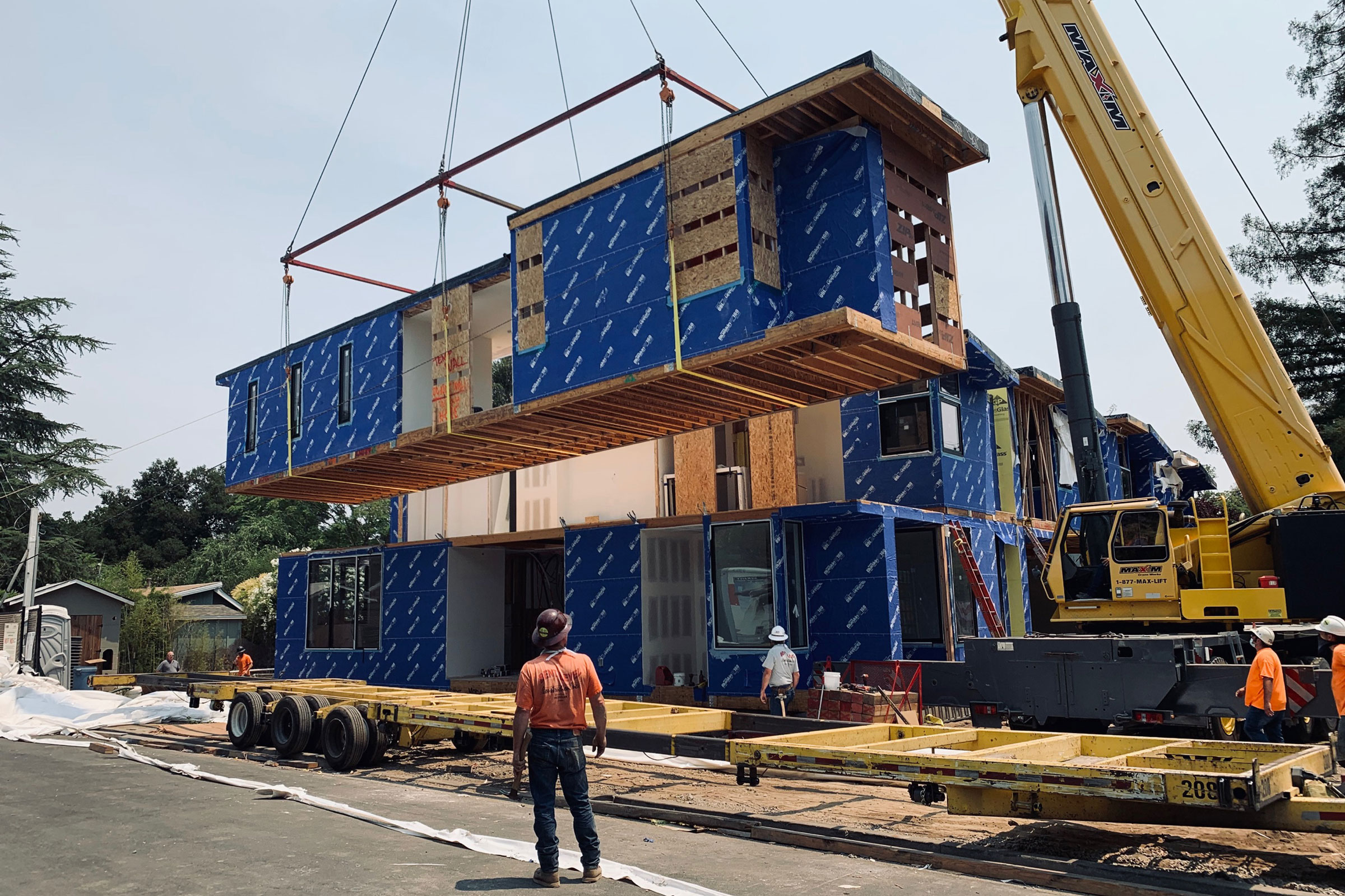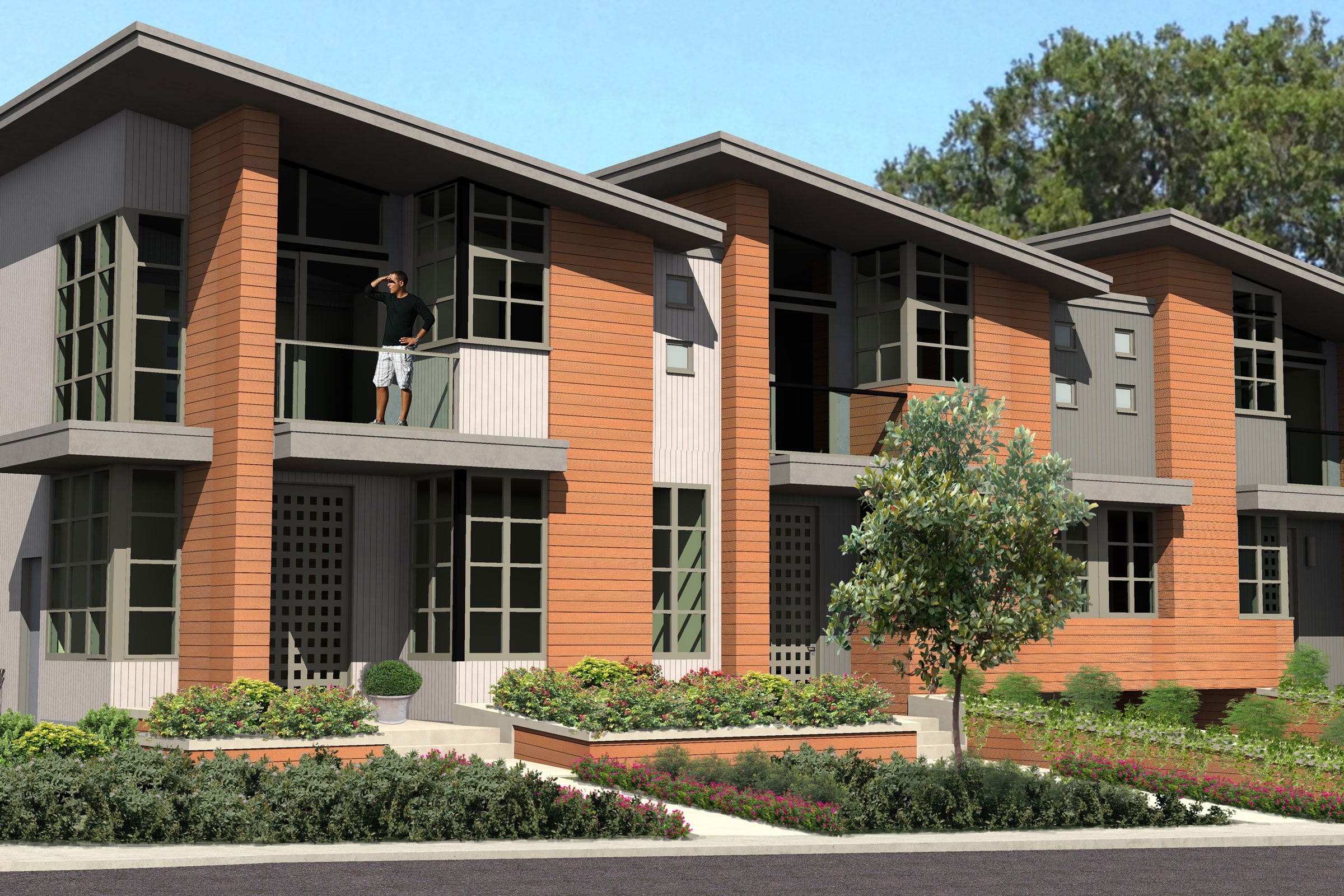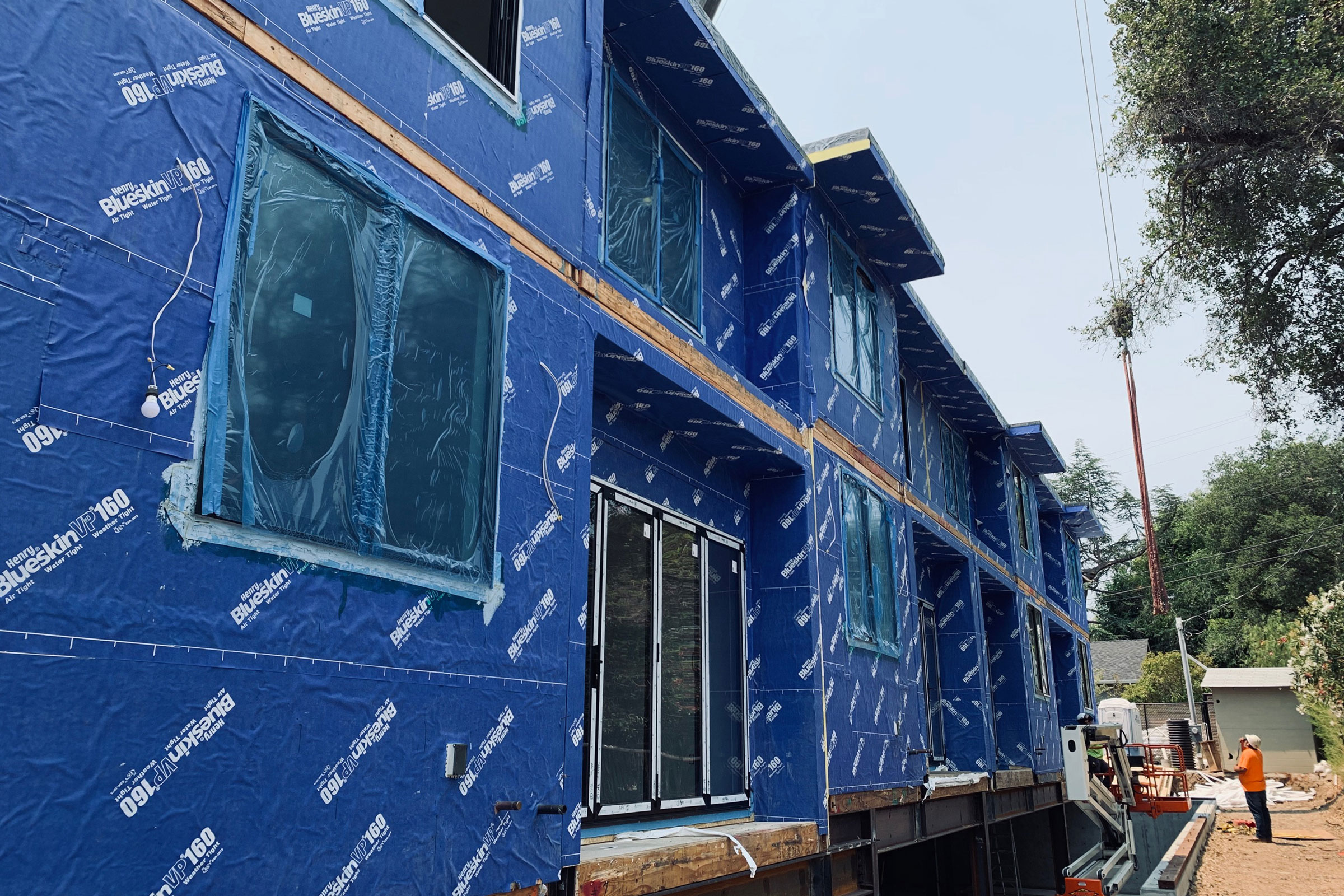
This California townhouse development was installed by Plant Prefab in partnership with Metro Architects. Photo courtesy of Plant Prefab
72 hours is all it took for Plant Prefab to install these custom-designed homes by Metro Architects
Time is money, and perhaps there’s no better illustration of that than in the construction business.
“Home construction is becoming more expensive, particularly in cities where housing is most needed,” says Steve Glenn, founder and CEO of Plant Prefab. “A combination of factors is responsible, including rapidly increasing land, labor, material, and permitting costs. As a result, developers, affordable housing nonprofits, and individuals wanting to build their own homes are all seeking a more time- and cost-efficient way to build.”
The average construction cost of a typical single-family home in a 2019 survey by the National Association of Home Builders was $296,652, or about $114 per square foot. That’s up from $80 cost of construction per square foot in 2011.
Since Plant Prefab builds custom architectural and sustainable homes, and often in California where building costs are higher, that does affect their prices, but even so their costs come close to those of average home builds. Plant’s custom prefab homes’ cost per square foot range from $125 to $400+ per square foot. “We build based on custom designs from any architect, and they have tended to be homes for higher cost urban areas,” Glenn says.
Construction quality varies greatly from one builder to the next, and Plant is a high-quality sustainable home builder. “We can’t and don’t compete with builders who use unskilled labor or inferior-quality, unhealthy building materials,” Glenn says. “Our efficient processes achieve drastic savings in labor hours, materials, and energy use. In many markets this makes building with Plant less expensive than building onsite. However, this is not true for markets with very inexpensive local labor or for locations far from our factory, in which case the cost of transportation can cancel out the construction cost savings.”
With rising costs across the industry and a growing demand for getting tenants in new buildings fast, Glenn says he’s seeing more and more people interested in prefab building in general.

Plant Prefab installed a four-unit townhome development in Los Gatos, California in three days in July. The custom-designed residences by Metro Architects are a prime example of how Plant Prefab’s building system allows for faster construction that’s also more efficient than traditional methods. Rendering courtesy of Metro Architects
Plant Prefab—the first prefabricated residential design and construction company dedicated to sustainable building, materials, processes, and operations—installed a 11,054-square-foot, four-unit townhome development in Los Gatos, California from July 13 to 15, 2020. The custom-designed residences by Metro Architects are a prime example of how Plant Prefab’s building system allows for faster construction that’s more efficient than traditional, site-based methods. This is in large part due to the fact that most of the construction takes place in the factory before the structure—which is essentially delivered on the back of a truck in large building blocks with everything complete inside—is taken to the site.
Glenn says building quickly and sustainably is even more important now, post-COVID-19, as much construction slowed during the beginning of the year. “Building housing more efficiently is critical now because there is a large and increasing imbalance between supply and demand, and that’s one of the reasons there is rising homelessness,” Glenn says.
He adds, “Buildings, as a category, use enormous energy, water, and material resources, and as those resources become more scarce and their use/extraction more harmful in terms of their impact on the environment, it’s critical to build in a more sustainable way.”
The new townhomes range in size from 2,650 to 2,902 square feet, each with three bedrooms and four bathrooms. Their modern design and underground parking cater to the area’s lifestyle, while they also emphasize accessibility for multigenerational families and residents with disabilities. A slanted roof enables rainwater collection and optimal performance for solar panels. Natural wood and stone finishes create warmth and ensure the new development blends seamlessly with its residential surroundings.
“Building with Plant Prefab allowed us to significantly reduce disruption to the neighborhood,” said project developer Jordan Castillo in a press release. “Building offsite also meant that we could work on the site and structure simultaneously. This was particularly beneficial in the wake of the coronavirus pandemic.”

“How much energy, water, and material resources a home uses is dictated more by decisions that an architect and the general contractor or prefabricator make with respect to design, materials, and systems,” says Steve Glenn, CEO and founder of Plant Prefab. “So while prefab construction generally saves more construction waste versus traditional construction, there is nothing inherently more sustainable about prefab. However, health and sustainability are core DNA for Plant, so we are very careful about how we source the materials we use for construction. Our drywall, for example, integrates recycled materials and is mold-resistant, and we only use non-VOC paints and stains.” Photo courtesy of Plant Prefab
Though the pandemic delayed site work, construction of the townhomes was able to continue as scheduled at Plant’s Rialto, California facility. The homes were built to the architect’s exact specifications and placed in storage until site work was completed, contributing to the overall efficiency of the construction process.
Plant prefabricated each of the four custom residences as four fully volumetric Plant Modules, complete with all finishes and fixtures in place. By installing plumbing and electrical systems, cabinetry, countertops, flooring, millwork, tile, and appliances in the factory, costly onsite finish work was kept to a minimum. Smart utility connections and precision prefabrication, both signature elements of the Plant system, facilitated the three-day installation.
Every Plant Prefab home is built in the company’s own 62,000-square-foot custom home-building factory following a rigorous sustainability program that minimizes the negative impact on energy, water, indoor air quality, and material resources. Nearly 30 Plant Prefab homes have been certified LEED for Homes Platinum, including the first home in the world to achieve the certification.
